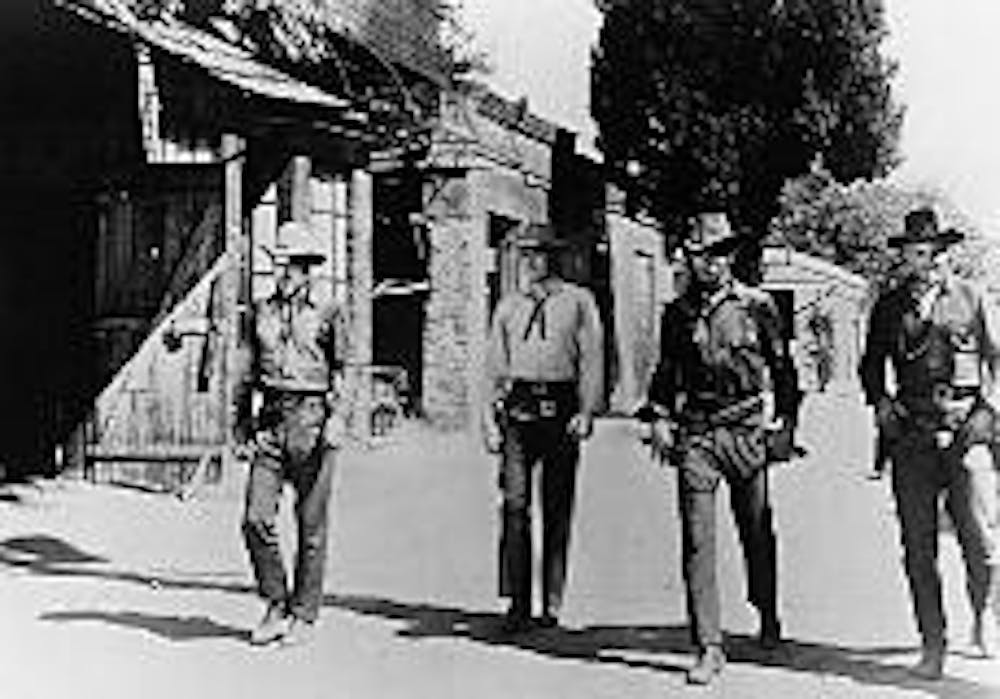The thrill of a Western lies in its guaranteed action and violence. But what if a Western was to speak against the idea of violence?
Contemplation, not action, powers Fred Zinneman's "High Noon." The hero, Kane (Gary Cooper), marries Amy (Grace Kelly), but immediately after the ceremony he receives news that old foe Miller is returning to town at noon to seek revenge on a past quarrel they had. His automatic reaction is to stay in town instead of going on his honeymoon with Amy. He wants to meet his enemy and fight for what's right.
His new wife, a woman who's seen the tragedy of fighting, disagrees. She became a Quaker after her brother died in a fight and she loathes physical disputes no matter the cause, no matter who's right and who's wrong. Expressing her disapproval, Amy waits for the noon train out of town and leaves Kane by himself. The entire movie follows Kane awaiting Miller's arrival and trying to gather support for his cause. He finds himself in a solitary, self-righteous rut.
Now consider this: What if we're talking about more than a fight between two fictional characters. Perhaps it is a movie protesting the use of war? This is the interpretation of many audiences, and you will see why in the plot. While Kane is trying to gather a group, the concerns people bring up will sound awfully familiar. You did not have to be around in 1952 for this movie to speak loudly. A generation going through the war in Iraq will clearly understand the characters, their qualms and motivations. Phrases like "But we don't even know what we're fighting for!" particularly stand out.
"High Noon" takes the fundamental ideas of pacifism, war and all its ambiguities to its core. This is not the typical saddle-up-partner, cutthroat Western. It's actually a chance for the gun-hater to get some voice in a dusty world of bellicose brutes.
Why You Should Watch This Film:
This movie is considered by many to be the best Western ever made and the most definitive. While it may not seem like a morality "laid on the table" kind of movie, for its time it was destructive. During the McCarthy era, screenwriters were hunted down like mischievous children hiding in the playground of double-meaning movies. Indeed, "High Noon" screenwriter Carl Foreman was caught and blacklisted like many other writers. This was his last movie before expatriating to London.
Back in the '50s, "High Noon" was seen as an allegory for the Cold War: the lone fighter with his cause and nobody willing to back him up. You can bet that if Hollywood were to do a remake of this classic, audiences would sing the same tune.





